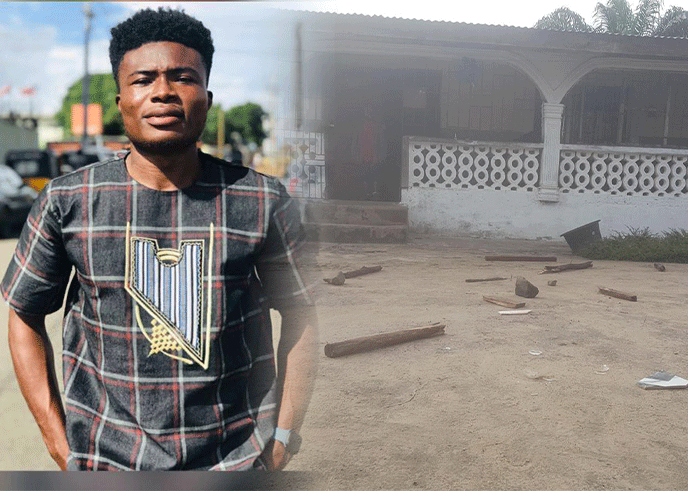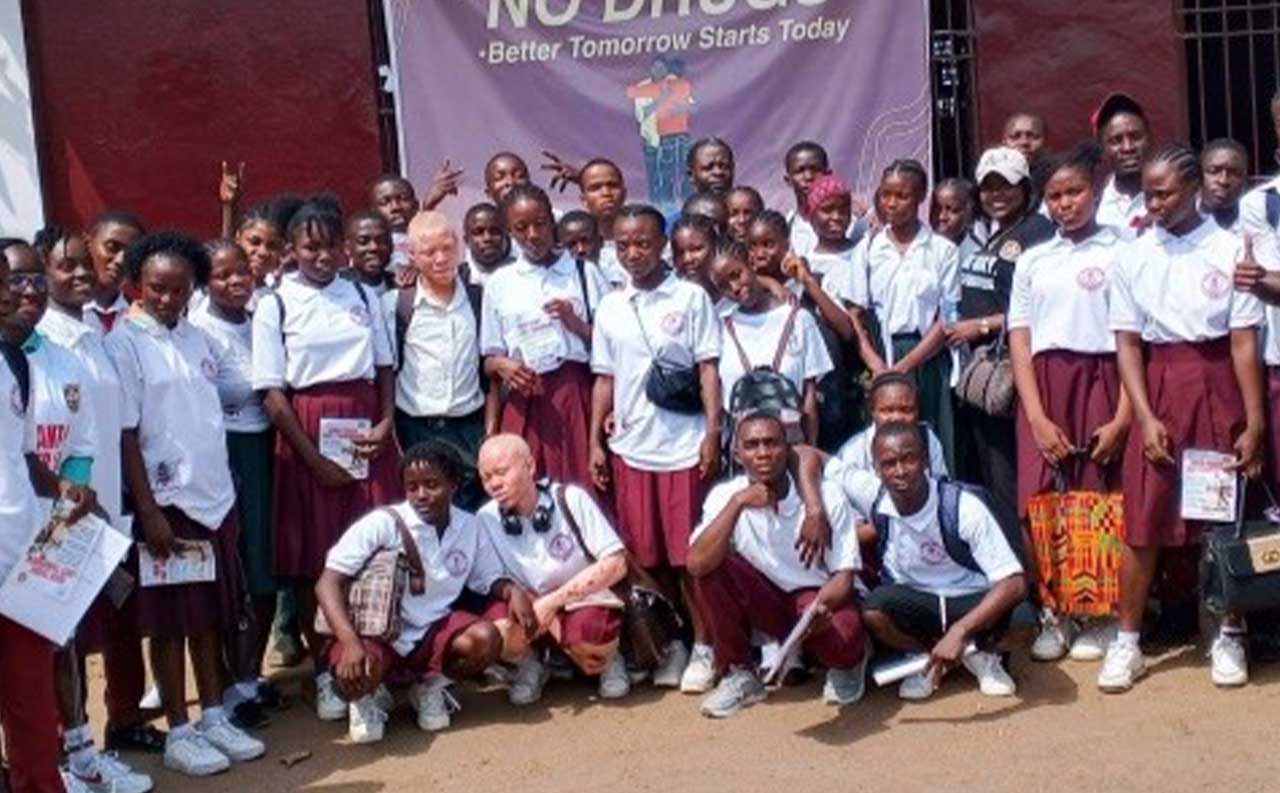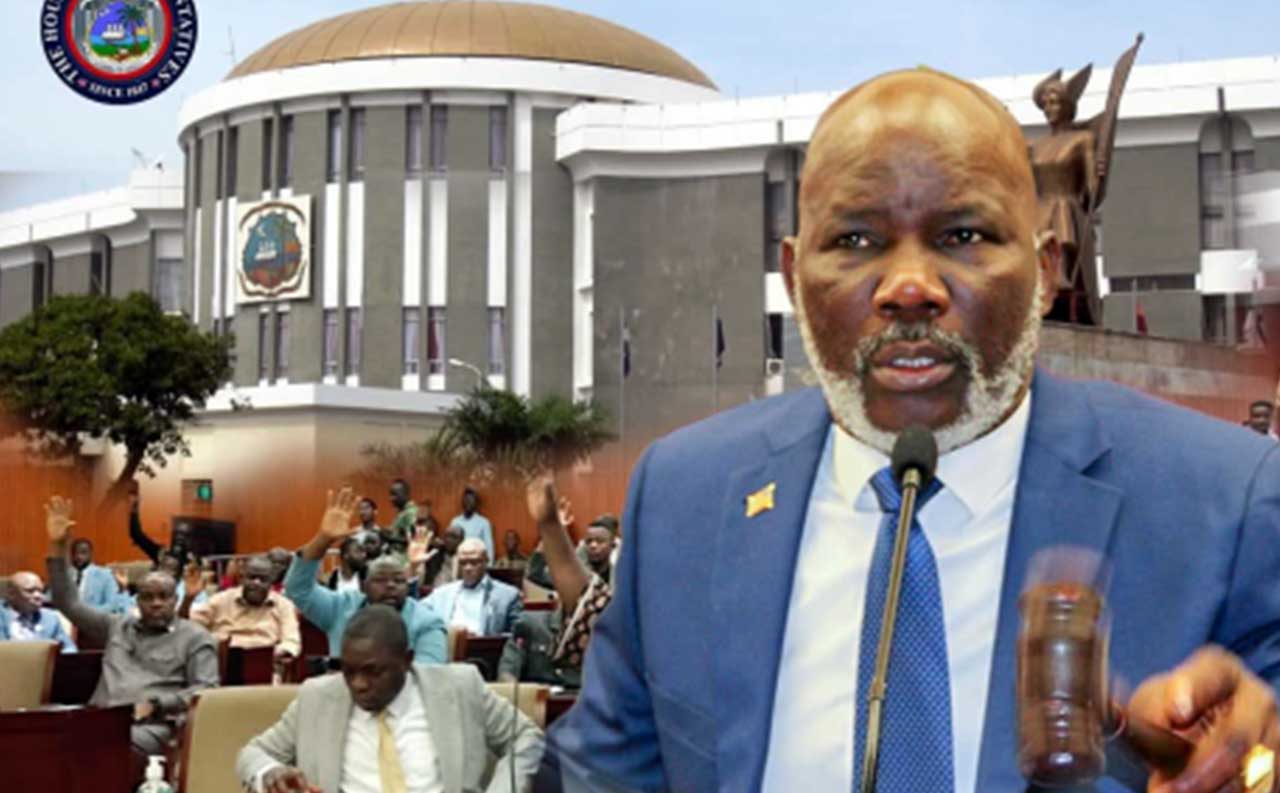Gartor Brown, a LGBT advocate has been attacked and his residence ransacked after angry men stormed his home in advocating for an act that they termed as taboo and should never be practiced in Liberia.
Reports have it that on August 26, 2022, Gartor Brown and his close gay friend Richard Yanquoi attended a graduation ceremony at LIBASSA, a famous recreation center in Liberia. During the ceremony, Gartor Brown spoke about their friendship, origins, and the many challenges they faced.
He also spoke about the importance of LGBT rights, and freedom to practice sexual activities as may be chosen by individuals in Liberia.
However, the ceremony was destabilized and there were attacks from all sides by people who opposed such practice in Liberia.
According to reports, Gartor was reportedly attacked with glass bottles, knives, and chairs and the attackers are said to have also thrown rocks at him.
Eyewitnesses told this paper that Gartor was rescued by few gay attendees who helped him to narrowly escape the scene.
Information had it that when Gartor got home, there were numerous calls and messages from unknown numbers.
One message read “Be thankful that you narrowly escape tonight, otherwise, they were going to find your body on the beach, and nothing will come out of it”, and another message read “I was going to sodomize and put stick in your anus tonight since you don’t know what is good for you”.
During our investigation with one of our sources who chose to be anonymous told our reporter that on June 21, 2022, at about 1800hrs, some unknown individuals stormed the home Gartor Brown, thinking that he was home so that they could get rid of him, fortunately, he had left the house.
Gartor Brown, a LGBT advocate started a local LGBT rights movement in his local community on April 22, 2022. This advocacy has caused him to be targeted by several unidentified men from the neighborhood where he lives in Liberia.
He is said to have received threatening messages from private numbers threatening to sodomize him since he is supporting the practice of LGBT in Liberia through his advocacy.
Gartor believes that everyone has the freedom and right to live whatever kind of sexual life he or she chooses, even if they are not gay.
The LGBT advocate is one of the few Liberians like Archie Ponpon who believes that everyone has the right to choose his or her sexual lifestyle.
In 2012, Ponpon and Abraham Kamara set up the Movement for the Defence of Gays and Lesbians in Liberia (Modegal) to defend the rights of homosexuals in Liberia which, like many countries across Africa, is socially conservative and outlaws homosexual acts.
But the creation of the group to campaign for gay rights in Liberia has led to a fierce backlash – a house rented by a mother of a campaigner has been burnt down and even the president – Ellen Johnson-Sirleaf waded in to say she will never support laws recognising homosexual rights.
The move became the talk of the town, dominating discussions on radio talk shows, street corner teashops and university campuses in the capital, Monrovia, especially their call for same-sex marriages to be recognised.
Ponpon and colleague were on several occasions attacked by people who out rightly opposed such practice in Liberia.
On one occasion, Ponpon was at a local radio station (Truth FM) advocating for the protection of gays.
In no time, the station was besieged by angry crowd demanding that he should be turned over to them so they can deal with him.
The situation became so chaotic that the Liberia National Police was forced to intervene and rescued Ponpon. As a result, he went into hiding for months while unknown men visited his residence at night in an apparent attempt to deal with him.
BBC quoted a priest officiating at a marriage at St Anthony’s Catholic Church in the Gardnersville township of Monrovia as saying “man-to-man marriage will not hold.”
The congregation went wild in applause as he went on to refer to “the nonsense that we keep hearing on the radios”.
And in a reference to overseas aid, which some Western leaders have linked to recognising gay rights, he added: “They can take their money; we will live; we have vast natural resources.”
The Liberian Law disallows consensual same-sex sexual activity. Sections 14.74 and 14.79 of Liberia’s Penal Code define consensual same-sex sexual activity as “voluntary sodomy”, a first-degree misdemeanor punishable by up to one year in prison.
As a result of the above, those accused of crimes in Liberia, especially at police stations, used the victim’s LGBT identity as justification for their crime. LGBT people had a difficult time seeking justice for crimes perpetrated against them. The 2020 Country Report on Human Rights Practices in Liberia issued by the United States Department of State emphasized the unrelenting instances of assaults, harassment, and hate speech against members of the LGBT community.
There have been some bills criminalizing LGBT in Liberia, even though there are other bad practices carried out in Liberia, such as female genital mutilation, a practice that is not criminalized.



